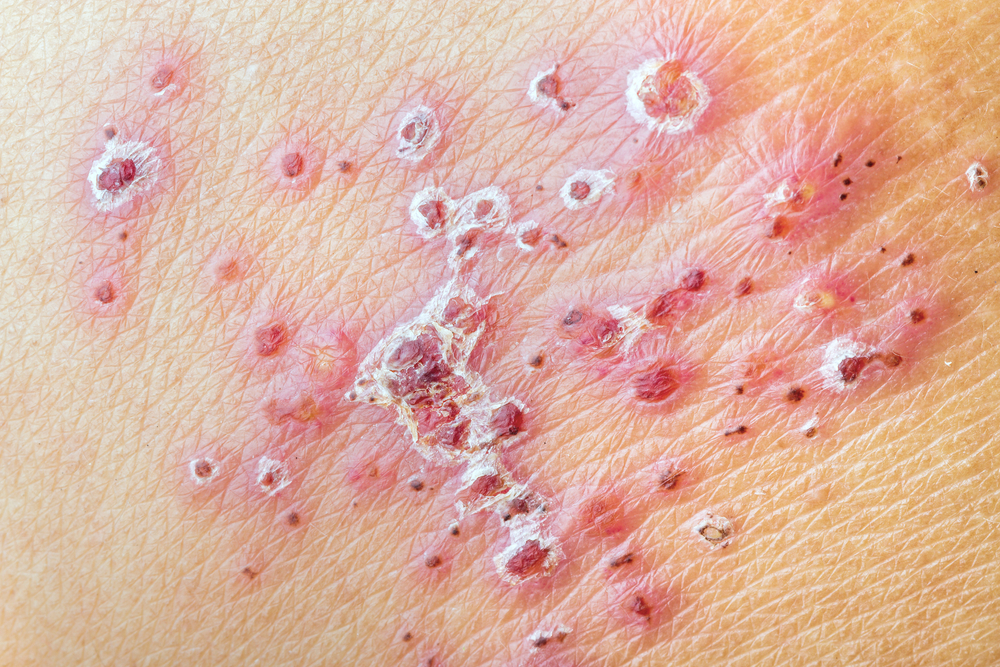Ulcerative colitis - a long-current inflammatory bowel disease.
The peak incidence of ulcerative colitis in the age between 20 to 40 years. In men, the disease occurs more often than in women (1.4: 1), while urban residents are more likely than those living in rural areas.
Among the factors contributing to the disease must first be called hereditary predisposition. Relatives of patients, the risk of its development is 10 times higher than in the general population.
If ulcerative colitis affected both parents, the risk of development of a child to 20 years of age increased to 52%.
The factors hindering the emergence of ulcerative colitis, should include smoking. Smokers risk of developing the disease is lower than in non-smokers or in patients who have stopped smoking. A convincing explanation of the protective action of smoking has not yet given in ulcerative colitis. It is assumed that during smoking decreases blood flow in the mucous membrane of the rectum, thereby reducing the production of inflammatory agents.

The manifestations of ulcerative colitis
Painting ulcerative colitis depends on the prevalence of the disease and the degree of severity of inflammation.
Leading symptoms include rectal bleeding, and loose stools. Stool frequency averages from 4 to 6 times a day. When severe, it reaches up to 10-20 times a day or more. The volume of faeces, usually small. In some cases, during defecation allocated only blood and pus, mixed with mucus.
Sometimes patients complain of false urge to defecate and a feeling of incomplete emptying of the bowel. In contrast to patients with functional intestinal disorders stool in patients with ulcerative colitis is also at night.
Some patients, especially those with lesions of the rectum, can be observed constipation. Their appearance is explained by the often painful spasm of the rectum.
Approximately 50% of patients the pain in the abdomen.
Almost 60% of patients have extraintestinal manifestations - various lesions of joints, skin, eyes, mouth, and liver.
In some cases, these lesions may precede the appearance of bowel symptoms.
The diagnosis of ulcerative colitis is based on the results of X-ray, endoscopic and histological studies.
complications
Complications of ulcerative colitis are:
- intestinal bleeding;
- gap bowel wall;
- formation of fistulas and abscesses;
- narrowing of the intestinal lumen and development in the remote period of colorectal cancer.
Treatment of ulcerative colitis
Patients with acute exacerbation of ulcerative colitis are hospitalized, preferably in specialized gastroenterology or coloproctological compartment. In severe patients temporarily appoint tube feeding.
The major drugs used for the treatment of ulcerative colitis are corticosteroids and 5-aminosalicylic acid.
Corticosteroids are used for moderate and severe course of the disease.
Prednisolone administered at 60 mg / day. After 4-6 weeks after remission of the disease is reduced dose for 8 weeks (at 5-10 mg per week) to establishing a maintenance dose (10-15 mg weekly) or until complete abolition prednisolone to the transition to the administration of drugs 5-aminosalicylic acid.
When isolated ulcerative proctitis or proctosigmoiditis administered 100 mg of hydrocortisone in the morning and evening enemas or in the form of foam. At very severe hydrocortisone is administered intravenously (100 mg / day) during 10-14 days.
Among Topical corticosteroids include beclomethasone dipropionate, budesonide and fluticasone dipropionate.
An important role in the treatment of ulcerative colitis and take sulfasalazine drugs 5-aminosalicylic acid (mesalazine). Sulfasalazine (3-4 g / day) is used less frequently because of the considerable frequency and severity of side effects. When proctitis and proctosigmoiditis prescribers in suppositories (1.5 g / d) or enema (4 g).
In common forms of the disease drugs 5-aminosalicylic acid used in the tablets (1.5-3 g) in combination with glucocorticoids. After achieving clinical and laboratory remission mesalazine is used for the purpose of long-term maintenance therapy to prevent disease relapse.
In exacerbations ulcerative colitis ustoyachivyh to corticosteroid therapy may be an effective use of cyclosporine, which usually is assigned a dose of 4 mg / kg intravenously or 10 mg / kg. Cyclosporine should be used with great caution because of its toxicity and high frequency of side effects.
An alternative in the treatment of resistant forms of ulcerative colitis may also be azathioprine (1-2 mg / kg per day) or methotrexate (15-25 mg / week i.m.). In applying methotrexate also reckoned with its high toxicity.
Absolute indications for an operation for ulcerative colitis are tearing the intestinal wall, massive bleeding or the occurrence of colorectal cancer.
Relative indications for surgery are the development of toxic colitis, as well as the inefficiency of conservative therapy, especially when forming pseudopolyposis expressed.
Forecast
Current treatments are effective in 85% of patients with mild to moderate ulcerative colitis. Most patients can achieve complete remission. Moderate clinical manifestations are stored in 10% of patients.


